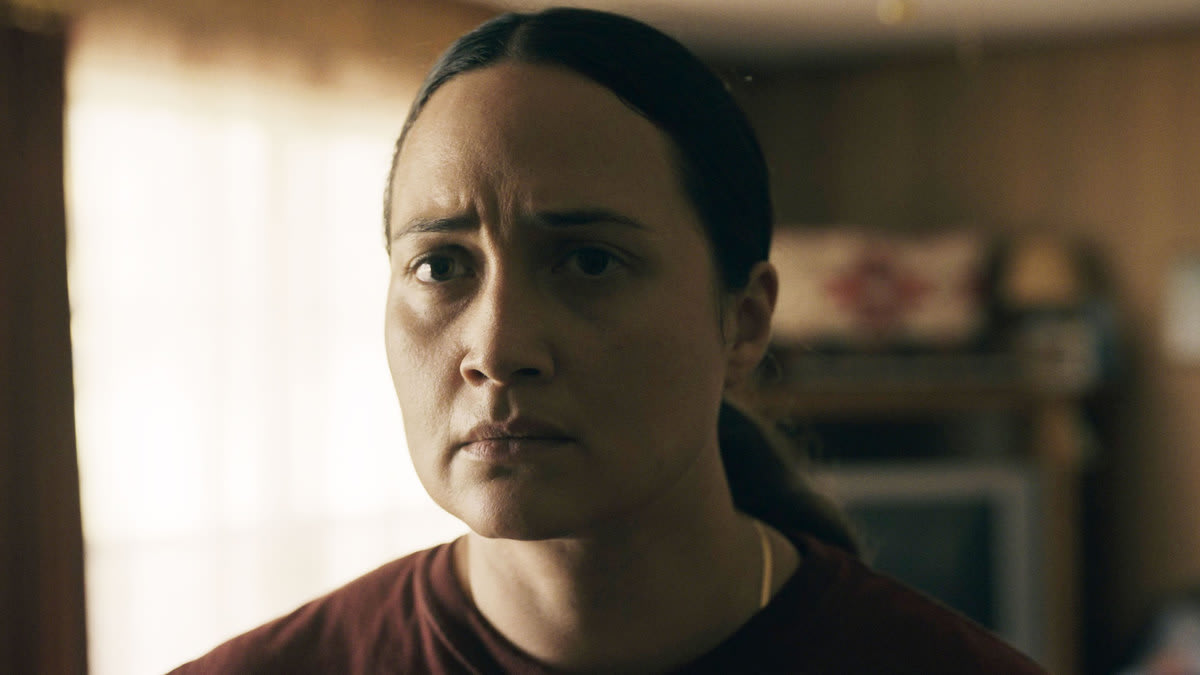
Director: Erica Tremblay
Stars: Isabel Deroy-Olson, Lily Gladstone, Ryan Begay
It was around this time last year when Riley Keough and Gina Gammell’s effective and well-intentioned indie War Pony received limited UK distribution that I bemoaned lightly the lack of indigenous representation in American cinema. That film – set on a South Dakotan reservation – thrived thanks to its sense of collaboration, a quality which also buoyed Martin Scorsese’s Killers of the Flower Moon late last year in no small way. Still, it’s heartening to see louder Native American voices getting their chance at the megaphone with the release of Erica Tremblay’s latest feature Fancy Dance; an intimately scaled but grandly affecting splice of drama and crime thriller that reflects a marginalised existence in the heartland of America.
We’re in Oklahoma, present day, and Jax (Lily Gladstone) is putting up flyers for her missing sister Tawi (Hauli Gray), gone some weeks now leaving her 13-year-old daughter Roki (Isabel Deroy-Olson) at a critical time in her life. They live on the reservation, eking out an existence in opposition to the law as often as not. Roki has proven a quick study in petty theft thanks to her aunt’s tutelage. In a manner similar to that shaded in by War Pony, reservation life is typified by poverty and drug misuse, and the trades that entwine the two.
A tension persists between past and present tense when people speak about Tawi, denoting their levels of optimism that she’ll be found alive. Roki is steadfast that her mother will return in time for the annual powwow; a ritual dance the two have attended for as long as she can remember. Jax, meanwhile, is infuriated by the lack of interest in the case from law enforcement that borders on belligerence. When child services get involved and attempt to separate her from Roki, the temptation to circumnavigate procedure grows overwhelming.
Starting out as a deftly observed albeit forlorn kitchen sink drama, Fancy Dance gradually mutates into a surprisingly taut and suspenseful road movie. Jax absconds with Roki from her father Frank’s (Shea Whigham) middle class home, on a beeline for the powwow with some investigative detours along the way. In this mode we’re prompted to observe some aunt/niece bonding, something skewed by Roki’s happenstance acquisition of a loaded firearm that she keeps secret from Jax. It’s not so much a gun-on-the-wall as a gun-in-the-backpack, and our knowledge of it seeds a deep sense of foreboding that Tremblay takes nuanced advantage of.
Jax has an in on the local police force, JJ (Ryan Begay), and Tremblay pries inquisitively into the sense of conflict he feels between duty to an institution and fealty to the community. Ultimately, the split nature of the narrative allows some late-film development of his place in the whole. There’s a mild sense of contrivance here and there, but Fancy Dance comes in at an impressively compact 91 minutes, and if this gets us there so be it. Our brief journey with JJ allows Tremblay to flex as much dread and unease as she conjures in the main portion of the narrative. The true heir to True Detective may be hiding in plain sight…
Gladstone unsurprisingly shines, and its wonderful to have her in a leading role (not her first, but her first to receive a cinematic release here since her deserved ascendancy). Fancy Dance asks for a different register than her prior star-making performances, and she proves herself once again. For her part, newcomer Deroy-Olson eminently charms as Roki, and could have a bright future ahead of her. It’s certainly earned here.
In the end it is perhaps a routine stop ‘n’ search by an ICE agent that most powerfully vocalises the anger and indignance at the heart of Fancy Dance. Jax and Roki are checked for their ‘immigration’ status and the irony is not lost on the audience. As with most interactions with any form of bureaucracy here, its the callous compartmentalisation that reveals the fascist police state standing watch over a people controlled through poverty and addiction.
Traditional values and practices – belittled as ‘voodoo’ by one dealer, misunderstood by well-meaning whites and wryly referenced in the film’s title – are ultimately powerful tools for retaining a sense of self-worth and identity. The film culminates at the powwow, not with the dance Roki intended, but in a celebration and commiseration that plays as an act of abundant, prideful defiance.


